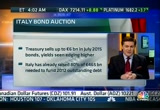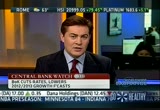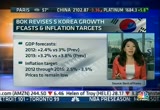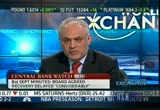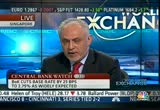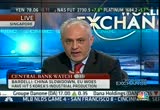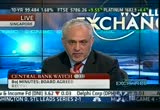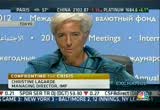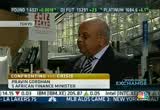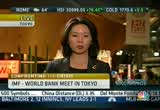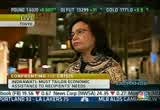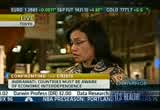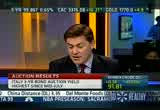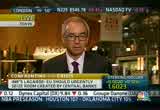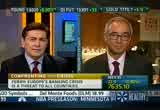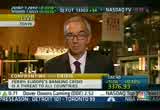tv Worldwide Exchange CNBC October 11, 2012 4:00am-6:00am EDT
4:00 am
. s&p down grades spain to just above junk status saying not to emerge capitalization. christine lagarde calls for developed nations to do more to get their budgets in order, while urging greece more time. >> central banks take action on slowing grow global growth. economy with waiting demand. plus the stakes have been raised for tonight's debate. new polls show the race for the white house has tightened.
4:01 am
welcome. it's thursday here on "worldwide exchange" and spain now holding above junk status. >> raising interesting questions as we'll discuss later in the program about investors' ability to maintain exposure to the sovereign. >> s&p move was expected, but it came after the euro group meeting. people now looking to moody's. if spain goes to junk, what does it mean for corporates. >> how many companies have we seen that are big, healthy companies being penalized and may not being able to have people invest in them because their rating is linked to the sovereigns rating. so whether they start to try to
4:02 am
detach those or just the pressure it puts on those companies to perhaps look elsewhere. >> speaking to cnbc earlier, blamed the move on the pressure on spain, but more important was the backtracking on using esm to directly capitalize the banks. >> the perceived commitment of eurozone governments to mutualize the cost of spanish bank programs have been put into question very much so and should be rejected fairly clearly by core european finance ministers. and we think this is a destabilizing factor in the country's credit outlook. so the question is what pressure that might put on its italian auction today. they're selling up to 6 billion in july btb. we did see t-bills yields edging higher for italy. has already raised, though, 80%
4:03 am
of the 465 billion needed to fund the 12012 outstanding debt. but those auction results will be out in just over an hour's or so time. >> even for the impact on spanish bonds, when people look and wonder perhaps why there isn't more impact, it's not just because this move is largely priced in. it's also because the ownership has been transitioning to domestic. so certainly at any time a healthy development itself. >> we also have data coming out, as well, spanish banks borrowing 400 billion euros in the ecb in september. 412 billion euros in august. so that number is steady. >> i thought we already knew this, perhaps it was just speculation or forecasts that i just saw, but it was a sense that the borrowing had come down a bit, but never the less according to the central bank, 400 billion euros in borrowing from the ecb.
4:04 am
i spoke the spain's foern minister of foreign affairs about the country's woes. we'll hear what she had to say. >> and then to tokyo where japan has suffered the biggest drop in machinery orders in nearly three years. >> plus over to new york, goldman sachs internal probe into muppet claims comes up fruitless. >> have you've got any thoughts, questions, worldwide@cnbc.com. first of all, the brazilian central bank signaled it's taking a break from further easing after cutting rates to a record low. it was lowered to 7 at the present time 25. in a statement, it says the stability of rates for a sufficiently prolonged period was the best strategy. and hot on brazil's heels, south
4:05 am
korea central bank also lowered its benchmark rate by 25 basis points. let's go to seoul. rhie, what were they saying? >> well, they were pretty clear that the external and internal environment wasn't looking favorable. the prolonged eurozone crisis and the possibility of so-called fiscal cliff in the u.s. is set to further send its dent on the exporters which is of course very important to the economy here. industrial activity also fell for a third month in a row and to top it all off, domestic demand is shrinking. retail sales dipped lower as koreans keep their wallets in their pockets, but all of this is in the cards. what surprised was the sharp cuts to growth projections this year and the next. meanwhile the central bank says its inflation target through 2015 to 3.5%, bok prices
4:06 am
remaining low, those expected to stand pat until the end of this year and possibly cut once again in the first quarter of 12013. >> rhie, thanks for that. at the same time, the bank of japan minutes out today. members agree that japan's recovery has delayed considerably and some said they were concerned about the yen's strength. there's also fresh evidence of that slowing growth. core machinery orders in august dropped for the first time in three months. the manufacturing sectors were the worse shrinking the most since november 2009. ubi capital, marco, nice to see you this morning. central banks are still trying to throw money to the problem. to a degree, central reaction has helped. can they keep propping it up for investors or not?
4:07 am
>> i think we're looking at two different animals between japan and korea. in japan, the situation is a little bit more critical than korea because bank of japan has lilted array of ammunition. and unfortunately, the strong yen as you mentioned before is really cause of the problem. and the point is that i don't see how the japanese consumer might be tempted to consume more because expectation of inflation is still quite low and the overall macro environment is definitely not putting any positive element for being japanese consumer. in korea, i think it's still a little bit different. first of all, bank of korea has not been put for three years and
4:08 am
then this is the second time this year. they still have room for maneuver. unemployment is still not at the worrying stage, of course, for the macro environment considering the problems. >> what about china? obviously sort of the heavy weight in the region. so while the other nations are trying to do what they can to spur growth, china has taken a different approach at least this time around. and then today there's been a lot of focus on the fact some of the highest levels that we've seen over time. so what do you expect to hear from the people's bank of china on this? >> well, as you probably know, currently in tokyo they have a meeting and i think japan had some expectations to try to create some sort of consensus it. i don't think it will happen because eyes are on china whereby they wanted to create
4:09 am
further press department or maneuvers on the currency. and the fact that we are currently having the power transition is making the whole situation more complex than it seems. >> we're looking at some of the generates and certainly this has been an area of concern for japan. perhaps it is just the fact that central bankers away the world are being so much more aggressive, putting downward pressure on currencies everywhere. and pushing up that yuan in china. do you expect the bank of japan to get more aggressive in its efforts? >> i think they would like to be more aggressive, but without some sort of consensus with u.s. and europe, it would be very difficult for them. in the u.s., there is elections going on. so there is not enough focus for
4:10 am
the bank of japan. >> we're now seeing china to law the renminbi to appreciate. what impact does that have? >> well, it's a step in the right direction. not with the tensions across north of asia. and again indication of that fwchlt dp growth in china is not going as they would like to. and i don't know if this is going to continue. >> marco, thanks very much for your time this morning. meanwhile, just over an hour and ten minutes or so into the trading day. european stocks down, well,
4:11 am
pretty level pegging actually if you take a look at it between advancers and decliners. yesterday around about half percent losses. right now ftse 100 up 11 points. cac 40 up mildly. ibex interestingly enough is down this morning as you you might expect around about a percent. let's take a look at spanish yields. they're nudging back up towards 6%. 5.92%. we talked the italian auction coming up this morning, too, up to 6 billion of 2015 btps. we'll show where you we trade on that. currently at 3%. those results around 10:00 london time. 11 cet. >> as far as currency markets, certainly there was an impact on
4:12 am
the u.s. dollar, but 1.2873. to be fair pretty much where we were this time yesterday. dollar yen's moved further down the level. sterling-dollar still just above this 160 mark at the moment. that's where we are with the european numbers. let's get an update on the asian session. >> most asian markets finished lower. shares in the mainland snapped a two day winning streak weighed down by financials, miners and industrials. loans dropped by about a quarter from the previous month. the imf also warned of risks from the shadow banking system in china, but mainland banks led support to the hang seng ending higher by 0.4%. the government of the central sector will continue to share purchases in the big four banks.
4:13 am
infrastructure plays also outperformed on expectations of more government support and shares of china surged over 7%. elsewhere the nikkei continued its losing streak for the third straight session while ending at a more than two month low. lingering concerns on corporate earnings dampened sentiment and automakers were still in reverse gear on the back of toyota's recall. heavy selloffs weighed on the kospi. meanwhile weakness in miners september the australian market lowers as the country's unemployment rate rose to 5.4%. index sensex also bucking the downward trend higher by 0.#%. back to you, ross. >> thank you. over in tokyo, christine lagardes has been urging the world's rich economies to ease up on the austerity measures and pick up the pace of reforms.
4:14 am
kerry, how is that going down? >> this is a call from the imf because as you know, they have down graded their assessments for global growth. so this is a call for more reform measures and urging for speed. at a time when 188 member states are coming together to deal with the eurozone, you but really not a whole lot of contract direction in how to solve the three year debt crisis. but here's what the managing director had to say. >> decisions have been made whether they have skied to streg then their discipline to make it much more cohesive and coordinated, or whether they are embarking on designing a
4:15 am
european banking supervision system and hopefully a european union. but more needs to happen and faster p. >> she also has to respond to the more sort of vocal criticism from some members of the imf, of the fund. particularly from the developing nations that are saying that the fund is spending too much time and many of its resources on one area, the eurozone. and this of course chorus growing louder especially from some of the emerging economies like brazil. in a very similar pattern to what we saw after the lehman crisis back in 2009. i had a chance to speak to the finance minister of south africa earlier on this year who is trying to put together a bank particularly for the bric economy ahead of their summit meeting. this would be an innovative move first since the it was set up in 1991. here's what he had to say 00 progress on that front.
4:16 am
>> a department bank has already gone through very systemic processes and we hope that by the time we get to march, we can say here's a road map in terms of how we put it on the street. >> it's fascinating as we listen to sort of there someone from south africa, spending so much of the meetings focusing on the issues planlging the western world. do emerging nations feel overlooked in a sense? >> i think the numbers have been fairly clear. we'll hear from todea spending s a result of the crisis is down for the first time in 15 years, so they are feeling the pinch. but it's also interesting that some of the clients are also going as direct foreign
4:17 am
investors in to some of these emerging economies like africa and taking afternoon more sort of pragmatic approach of development in knows regions. i'll be talking to the managing director at the world bank in a few moments time and she'll be able to tell us about in a. she has a lot of lessons that she can share with us as these ongoing problems embroil countries in europe. >> and kadri, we'll be back out with you in a couple minutes for that interview. thanks very much. meanwhile goldman sachs has reportedly come up with the results of her muppet investigation. >> this one you won't want to miss. find out what the the bank has discovered about the use of the term next.
4:20 am
how are the world's top investors positioning themselves? we visited the london summit to get their thoughts. i caught up with david weaver, president of jeffries international, to ask him about the challenges he's facing with investors in europe. >> i think the challenges are numerous. you'd almost have to go through
4:21 am
each asset category. i think the equity markets in europe have been an interesting and challenging place to be for probably two or three years now. and people talk about the epos and how difficult it is to get ipos done, but even the general equity market conditions have been quite difficult. as a lot has to do with investors losing funding. so year to date, $17 billion approximately has gone out of the equity markets in europe, which is a consider only sum of money. on the flip side, we've seen a real resurgence really just beginning about six or seven weeks ago in european equities starting on the secondary side and now translating to the primary side. you've seen transactions trade up in the after markets, so there are some glimmers of light in the funding market. >> did you tie that to the european central back, its change in language, change in strategy towards being more accommodative? >> certainly. i think that's a big part of it.
4:22 am
i think we've gone through so many iterations of this crisis that it's difficult to know what version of it that we're in. but one thing has become pretty clear that draghi did mean what he said a few months ago about doing whatever it takes. there is a real commitment to the euro, people are talking about redenomination risk in class, in other words, the risk of the actual currency itself destructing or devofling. so i think that has given people a binary level of confidence. and then once through that, you're looking at liquidity and valuation. european stock market is quite cheap on a forward multiple basis. the economies here are in many cases better than people imagine that they would be. >> who specifically seems to be showing the most -- >> i think right now very much you're seeing global a investors look at european yield based stories. so dividend based stories.
4:23 am
i think tail lengths and the direct line are the process of going public or have gone public. effectively yield based stories. but that's really the classic beginning of the cycle where you see transactions begin to happen that are probably quite conservative and defensive. even in the secondary side where people are placing book build, you've seen stocks trade up in the after market. i think european investors are look at their allocations and deciding maybe this would be a good time to issue the issuance calendar. >> so he was talking about equities and he also went on to discuss what's going on on the debt side. and of course we've seen such activity in high yield. it seems everyone at the conference was talking about high yield when ask you where is the opportunity and action. they see it there. a no one feels like this is the end of psych chel is so remarkable because there are signs of almost frothing. >> everyone going we know this
4:24 am
is very expensive, we know there's a lot of money going into it, and yet we can't help ourselves. we have to have some more. is it that kind of feeling? >> it was almost like this is going to be a catalyst to help develop the market further. so they're still seeing its as an area of opportunity. and unless this is the very end of the cycle, we could have years left in the credit boon. so if this is just the beginning of the move into the space, it could be bigger, it could be almost better, worse, depending on your point of view. >> '97/98 in the tech pop. >> or 2006 in the credit markets to some extent. >> 2006 is only a year away from -- >> the collapse? >> yeah. i'm just wondering if it's more like '98. >> when we actually ask people where are we in the cycle, no
4:25 am
one could answer the question. let's stick with banks for the moment because cnbc has confirmed reports that jpmorgan cfo plans to step down within the next few quarters. he's expected to transition to another role within the bank, but will lead the earnings call tomorrow. meanwhile the "new york times" reports u.s. authorities are used taped phone calls to build criminal cases over jjpmorgan's trading loss. jamie dimon says he should have caught on to the bad trades. >> we had a gap in the line. we didn't have this gap elsewhere. we have other flaws elsewhere, but we had a gap. we screwed up. and that quarter we made $5 billion. so, yeah, it was a stupid error. and it was really intensely stupid. if i took you through it, it's embarrassing personally, too. i should have caught it, also. i didn't. but it isn't going to sink our ship. >> gaps, flaws, sinking -- a lot
4:26 am
of mixed metaphors going on there. you can't put gaps and flaws together. they he mean completely different things. >> flaws, not floors. is that what you're saying? >> yeah. but it sounds like flaw when either's not -- if you have a gap in the flaw, but -- anyway. >> a lot of mixed metaphors. >> and then sinking ships at the end of it. goldman sachs -- you would if you had gaps. anyway, goldman sachs is probing in to allegations made by an ex-worker reportedly turned up nothing. greg smith who wrote a scathing called the bank a toxic place. the financial sometimes says goldman's review found weeks before he quit, smith complained about his bonus. he's written a book about his time at gold man which will be published in a couple weeks. >> 4,000 e-mails turned up with the use of municipal mppet --
4:27 am
>> how many times has the word muppet used at goldman sachs. >> and we'll talk about that in a second, as well. >> our very own steve liesman has an exclusive interview today with the goldman sachs ceo lloyd blankfein plus the co-chairs of president obama's deficit commissionity, simpson and bowles. they'll discuss the fiscal issues. that's at 12:30 eastern on fast money halftime report. so don't miss that. >> and still to come here, christine lagarde has harsh words about austerity. we'll head back out to cadd ere cadre oig in tokyo after the break. kadri in tokyo after the .
4:30 am
4:31 am
>> plus the states have been raised for today's debate between joe biden and paul ryan and new polls show the race for the white house has tightened. >> kelly and i might be wearing a dapper of red today. european stocks -- >> we didn't even plan it. we're just on the same wave length. >> stocks have a dash of green. not much, just a little. a welcome break if you're long in the markets after these days of losses. >> ten year moving higher, but not much. italy has been sitting at roughly those levels for some time now.
4:32 am
gilts are benefiting, as well, from a bit of dissertation. 1.76% yield on that this morning. >> and on the currency market, euro-dollar, we got down to 1.2825 the october first sort of two week low. we're above that, steady really. the world back new president says his vision is to focus more on the poor and less on the economic policy. kadri is in tokyo where the meetings are taking plaes and she rejoins us, as well. so this is a repositioning of what the world bank wants to do? >> both the world bank and the imf. as far as the imf is concerned, they're in the midst of a reform process in terms of government that was put in place in 2010,
4:33 am
but has been delayed. reform process that would give more people from the emerging nations a bigger voice so to speak in the decision making process at the fund. and a pivotal moment for the world bank, as well, because we've seen the numbers has suffered for the first time in 15 years because of the slowdown that many of these developed nations face. but who better to discuss the challenges for the world bank than the managing director of the world bank. she's of course the former finance minister of indonesia, very instrumental in putting your country back on the reform agenda. it's been a couple days since the fall meeting has opened. we've heard that the economies are slowing down a little bit more than what we initially expected. contagion is spreading. and there's just not a clear light at the end of the tunnel for the eurozone crisis. what do you do as a policy maker, you're urged to reform,
4:34 am
but when you're being whip sawed mostly by external factors? >> in the past two, three year, policymakers are more on the short term using the counter fiscal instrument. but i think it's time to look more medium long term perspective above how they have to repair that policy both on instrument as well as effectiveness. that'sier addressing the issue of the fundamental structure. you talk about in-from a instruct, exclusiveness, how to make the resource more useful and addressing the issue. so it is a developing time, but i think it's time to look more
4:35 am
medium and long term perspective. >> over the last 18 months, we've seen you wake up and the government you've been dealing with is no longer in power. has that changed the way they deal with banks in their negotiation? >> well, no. this is creating a lot of opportunity. the same policy -- some policy set is still relevant no matter the situation of the country. doesn't mean one size fits all. but to cope with external challenges as well as internal, whether unemployment or sustainability of their own macro policy or in addressing the shove structural like food prices, the same set of sound policy is still there.
4:36 am
you should look at your fiscal side whether you have the strong sound on the revenue side, using your spending in the most efficient way people really want you to be more accountable. and so many of the structural issues, whether talking about quality of skill, labor side, you really need a good policy 23r5i78 work to address the issue not only short term, but medium term. >> want to get to china. china has been aggressive in addressing issues at the world bank. they take a pragmatic approach. how does that differ and how does that counter some of the efforts the world bank may be involved in? >> many of the african government is actually shoring -- there is really a convergence of the interests.
4:37 am
it is for the chinese own interests in order for them to establish not only recommendation, but engagement with many african countries. but other countries also facing the same thing. and many government is actually asking questions how they should deal with china, what kind of best practices that will serve both china as well as the -- so they can have a mutual benefit. >> so this is not the short term situation. >> just one last question, if you would. was there any agreement reach order debt relief from myanmar today, and if not, when can we expect such a move? >> we definitely encourage the myanmar government to continue reform. and that has already matched with the willingness of international community to step up and speed up the decision
4:38 am
regarding the debt. whether this is relief or restructuring. also the decision for additional money in both the myanmar government to be able to start implementing the reform. and especially for the people there to enjoy the benefit of this reform in a more short term. world bank is looking at all the debt, preparing the decision that will be proposed to the board in order to structure. so we are excited to see the next couple of months to really implement this engagement. >> and investors, as well. >> definitely. private sector is a big opportunity now. >> thank you so much for joining us. managing director at the world bank joining us here live at the venue of the annual meetings. back to you. >> thank you so much. plenty more to come from there,
4:39 am
as well. meanwhile the world's top pc maker, new figures underscore the rapid rise of chinese technology firms, the shift comes as pc shipments slipped 8% worldwide with tablets and mobile devices becoming ever more popular. idc still ranks hp ahead lenovo, but only by half a percentage point. royal bank of scotland set the final stock price at 175 pence this morning. you can see the price there, 183.75. and ing selling to aia for $1.73 billion. the first of a series of divestments they hope to make to help repay a 10 billion euro bailout they received in 2008. the sale marks the second acquisition for aia in less than
4:40 am
a month. >> a quick look at the agenda tomorrow. we'll continue on the ground kufblg of the imf world bank be with the japan banking minister. and we'll discuss the infosys numbers right here on "worldwide exchange". still to come, we'll talk about spain, the impact of the s&p downgrade, and how long before spanish debt will be rated as junk. bob... oh, hey alex. just picking up some, brochures, posters copies of my acceptance speech. great! it's always good to have a backup plan,
4:41 am
in case i get hit by a meteor. wow, your hair looks great. didn't realize they did photoshop here. hey, good call on those mugs. can't let 'em see what you're drinking. you know, i'm glad we're both running a nice, clean race. no need to get nasty. here's your "honk if you had an affair with taylor" yard sign. looks good. [ male announcer ] fedex office. save 50% on banners.
4:43 am
s&p down graded spain's credit rate to go bbb minus, that's just above junk status. the ratings agency cited the can you think's deepening recession and warned of further cuts. just before the down grade, i caught up with a member of of the spanish council of state and the former spanish minister of
4:44 am
foreign affairs. i asked her the question that's on everyone's minds. will the country ask for a bailout. >> i have to speak to what the government has said. the government is evaluating the different options and the government says they will make the decision at the moment. my personal opinion, i think there's a great possibility that spin even if the conditions are there, if everything else falls in to place, spain will ask for it. but it for the moment, what we see is that the governments june 29, now there are some countries that are back pedaling or saying that it isn't -- so i understand that the government just wants
4:45 am
to take -- just to test the waters before getting into the bath. >> are you worried when you look at rates today that spain will go the way of greece? >> the way of greece in which sense? >> in the sense of protests, a real ripping at the social fabric. >>. >> i don't have a krystal ball, but what i see is that the biggest protests until now has been huge ly was 6,000 people i a country of 44 million. and i also know spain overwhelming voted a year ago go. and it's not because the leader is sim patty company orem empathize. not at all. spaniards know that we have to go through a program of
4:46 am
rebalancing. we have to expect these reactions. but to we expect raise of the extremism as the nazi party, honestly, i don't see any sign. do i expect demonstrations, yes, of course i do. because i think that it would be frankly as of today, what you would say is that i admire the voice of the spanish people at large. >> and also speaking, morris cramer blamed the downgrade on the continuing recession and also on the backtracking by some european governments. and he said this was in supporting using the esm to directly recapitalize spanish banks. >> the perceived commitment of eurozone governments to mutualize the cost of spanish
4:47 am
bank recapitalization programs have been put into question very much so. actually has been rejected fairly clearly by core european finance ministers and we think this is a destabilizing factor in the country's credit outlook. >> joining us for senator more is jonathan tepper. thank you for coming by. you've heard the comments there from s&p.jonathan tepper. thank you for coming by. you've heard the comments there from s&p. what strikes you about this particular town grade or more broadly speaking the likelihood that spain gets its act together and asks for a bailout? >> i don't know why people pay too much attention to the ratings agencies. a lot of people manage their bonds in line with the rating, but it's been obvious that spain was missing its budget targets and the whicheconomy was gettin
4:48 am
worse. particularly the last year. so the horse has already bolted the barn on this one. >> except on the basis that we had in june this idea that spanish banks could be recapitalized, by the thought we had a plan for the ecb to buy debt, and it's not coincidental that they made it two days after the meeting where we're getting continued stalling. >> this has gone on for a couple years, but the typical pattern is you have some market tank, yields widened, stock market goes down, things calm down, and then they backtrack. i assume that we'll probably have noticeable market weakness which will then lead to them doing more. i think the end game as anywhere
4:49 am
is sort of monetizing government debt and the ecb will end up buying a lot of spanish debt. the question is the ride bumpy to get there. >> is it now inevitable that spanish debt ends up sub investment grade and that may be the trigger? >> very possibly. if the ecb hadn't offered to buy bonds in a limited fashion, spanish bonds would definitely be trading much wider. and so i think the rating is irrelevant. the point is -- >> it's not irrelevant to those who you said earlier have to buy and sell according to what they can hold on ratings. >> of course. >> for spanish corporates, which the hanging system you've been calling attention to this forever, the looming problems there.
4:50 am
what ate end game there and how will they be affected? >> it's rare for companies to be able to borrow at a cheaper rate than their government. so one of the big reasons why we've been negative on spanish growth recently is because the sovereign bonds were trading at a pretty widespread to german bonds and at a high level. very difficult for corporates to finance themselves. and up until recently, the yield curve had been very flat and it's deepened massively. that's been a huge boost to spanish corporates and so they've been trying to borrow more particularly at the front end. obviously in the short run it means you can borrow at a cheaper rate. it's bad in the long run because the shorter your maturity, the more rollover risk you have. >> so going back to 2009 to move
4:51 am
to where re are today, are things as they have had to or have we created more problems than if we had taken a different route? >> i think the spanish government, both governments, have been supremely incompetent tent. so basically it was blindingly obvious there was an enormous real estate bubble. it surpassed the real estate bubble in almost any other country. and to insist repeatedly there was no problem meant all this time they could have recapitalized the banks earlier on when capital markets were more benign and sympathetic. instead, they just wasted that and then the unemployment rate kept on going up. so they've essentially put off reforms for years claiming there was no problem. and i think had they had a short sharp down turn, they would have been in a much better position. think of ireland, for example, which nationalized all the
4:52 am
banks. bond holders took losses. and ireland now is actually turning around. so ireland still has problems, but at least -- spain now has a 25% unemployment rate, 50% youth unemployment rate and leading economic indicators are still negative. it's not like spain is about to grow in the next three months. >> so what should spain be doing right now? >> what i would do for example banks need to get most of the bad assets off the bank books as quickly as possible. that means taking much biggers losses and it probably means the spanish banks need more capital and -- the biggest haircuts need to come from bond holders. what's interesting is that bond holders and equity holders have not taken enormous losses. so to me it seems crazy that the spanish sovereign which actually
4:53 am
is starting in a pretty good position now essentially taking on public liabilities -- sorry, private liabilities and putting it on a public option. clearly bond holders need to take losses. if you look at banking crisis generally of the magnitude of spain, almost all banks are solvent. so to me it seems crazy to try to merge the banks, pretend they'rine ing ookay. the bigger the losses, the better the private sector will be. so deleveragings can happen via write downs of debt, bankruptcies, or you can have essentially printing money to reduce the real volume of debt. spain can't do that. >> one one that induces the least pain. >> and put the imf in such a quandary. they look at the fiscal multiplmultipl
4:54 am
multiplie multipliers -- >> albert in-stein said the definition of insanity is doing the same thing over and over again and expecting a different result. look at greece, almost six years in a recession. spanish retail sales have been in term decline since 2007. so clearly austerity is working. >> jonathan, great to see you you. thank you for joining us.d. thank you for joining us. see you stick around to see you p biden is expected to hone in on mitt romney's comments about the 47% of americans who don't pay income taxes and expect government support to see you ryan likely to reiterate his argument that the u.s. can't afford another four years of president obama and the debate comes as a new poll shows the president and romney are neck and neck in two swing states, virginia and florida to see you obama still has a small lead in ohio to see you. >> so while the latest polls may show a tight race, there's another one that some folks think is more important, yes, it
4:55 am
is the 7-eleven indicator to see you it's selling coffee in democrat blue cups with obama's face and republican red featuring romney to see you the tally shows customers favor obama by 60/40 margin to see you the 7-eleven indicator has correctly predicted the winner of the last three u.s. elections to see you. >> i'm not sure that's a huge sample set to see you. >> have they only run it in three elections? >> good question to see you what's interesting, jetblue for its part is also getting in on the presidential election saying that if your candidate doesn't win, it will pay for you to fly -- >> interesting the colors in the uk are the other way around to see you. >> isn't it? we need to discuss this to see you but, yes, i don't know -- when i got here, i realized the conservatives were blue and liberals were red to see you. >> meanwhile, pizza hut is offering a lifetime of free
4:56 am
pizza to anyone who asks sausage or pepperoni to president obama or mitt romney during their next public debate on tuesday to see you critics claim the stunt threatens to derail the seriousness of the debate to see you sausage or pepperoni to see you. >> by the way, is sausage that popular of a topping? i could see cheese or pepperoni to see you what's interesting is you can either take a free pizza a week for 30 years or get $15,600 in cash to see you that works out to $10 is pizza which is roughly the price today to see you. >> take the cash to see you. >> no, you should actually take the pizza if you expect any inflation to see you if you expect any price inflation for a pizza, you'd be better off taking the pizza than the $16,600 to see you. >> jonathan tepper has walked out of this discussion he's so bored of whether it's -- he's gone to see you. >> i think pizza hut is calling the federal reserve's bluff to see you. >> take the cash and invest it
4:57 am
in a growing asset to see you which wouldn't be fixed income to see you. >> or anything else out there to see you. >> you could find a nice corporate yielding you 5%, 6% to see you. >> or start a pizza chain to see you make sure you tune in the debate coverage tonight at 8:00 p.m. eastern to see you. >> and coming up next, we'll talk to a guest who says the u.s. housing market has bottomed to see you
5:00 am
s&p down traded spain to just above junk status. >> imf chief christine lagarde calls for developed nations to do more to get their budgets in order, while at the same time urging europe to give greece more time. >> central banks take action on slowing global growth. interest rates cut by a quarter of a percent as economies cope with waning demand. >> plus the stakes have been raised for tonight's vice presidential debate between joe biden and paul ryan as new polls show the race for the white
5:01 am
house has certainly tightened. the downgrade of spain not causing huge market moves. s&p an nasdaq pointed a little higher. take a look at the mood across the rest of the globe. global 300 barely in position territory. stocks have been looking for direction this morning. fixed income space a little bit weaker. take a look at the european bourses. bolstered by burberry who had
5:02 am
shares up, but still recovering on its big warning on couple weeks ago. xetra dax adding 0.6%. ibex 35 is the underperformer today. down about 0.6%. so not disastrous certainly, but weak. >> we did see spanish yields also rise. got up to around 5.96%. you can see we're below that. we have got back down 5.84. just concluding an auction and t-bills rose yesterday, but they've come down a long way from the 5.3% that we head on the three year yields. ten year of course was higher than that, as well. show you where we start on the three year, currently 3.037.
5:03 am
euro-dollar rebounded back up. kind of the levels that we were this time yesterday. aussie dollar trying to put a little bit more meat on. that's where we trade on european assets or prices at the moment. let's go to sink more with more on the asian trading day. >> most asian markets retreated following negative cues from wall street. mainland shared pulled back after a two day rally. new loans dropped by about a quarter from the previous month. mainland banks leapt support to the hang seng ending higher by about 0.4%.
5:04 am
the government says they will continue to increase stakes in the big four banks if the structure plays also outperformed on expectations of more government support. shares of china rail ways construction surgeriy e surged . elsewhere the nikkei fell for a third straight session ending at more than a two month low. automakers took a further beating on the back of toyota's recall. heavy selloffs on index giants samsung and hyundai weighed on south korea's kospi following the bok cut to interest rates and gop forecasts. us a tral kran market went lower as the unemployment rose to 5.4%. and the sensex higher by a strong 1% at the moment. ross, back to you. we're into the second hour here. plenty to come through today.
5:05 am
>> the most is getting the pizza debate. >> you want a pizza annuity. i say at that time catake the c it. >> i'm not sharing with you then. richard fisher says the looming fiscal cliff is keeping u.s. businesses from deploying their cash. speaking in washington wednesday, fisher said companies won't boost hiring until these issues are resolved. he says there are limits to what the fed can do with monetary policy and that he'd like to see the fed drop it dual mandate of employment and inflation to focus solely on ensuring price stability. joining us on set for more is ask the minard. what do you think about what richard fisher is out there say something shoot fed focus on just price stability? >> the dual mandate of fed is a
5:06 am
problem. whether we should be focusing on price stability or targeted rate of inflation, which i think is going to be necessary over time to essentially get us out of this mess, fisher's view would be, look, we should have 0 to 2% inflation. that's not going to solve the problem. >> the debate is shift to go a place where if you were to accept just one mandate, he would probably prefer something in the range of 3%. >> that's right. and i think we're in the midst of a transition in global monetary policy. especially after mervyn king's discussion a couple of days ago, where central bankers are starting to think of inflation as a policy tool rather than focusing on price stability. and i think that subtle mental shift is -- >> i thought you were going to say they would focus on inflation as a positive. but to some degree that's the
5:07 am
flip side of the coin which is to say that reflation is perhaps seen as unnecessary even though it's where we're seeing the reaction seems to be in food, commodity, gas. >> and i think you look at the work that tells us once the governments get to these levels of indebtedness, that the debt inevitably gets discharged. it will either get discharged through restructuring and default or discharged through depreciating your currency or your purchasing power. >> everyone is trying to depreciate their currency. >> it's interesting when everybody is trying to depreciate at once, it's the great race to the bottom. >> it all ends up even, doesn't it? >> well, except that you do have the issue in relationship to the purchasing power of the currency itself. and ultimately price stability. so if you look at this great race to the bottom in terms of
5:08 am
all the central banks around the world engaged in quantitative easing in one form or another, you basically call into question the stability of paper money. and i think that's -- i think anything that is -- >> hard assets. >> hard assets, art, gold, certainly there's a lot of up side. >> when you're looking at those kinds of investments, what aside there gold, where do you see opportunity perhaps to sort of offset what you're talking about in. >> in the united states at this point, residential real estate is dirt cheap and for small investo investors, it's a great place to go. especially when government policy is that we'll lend you 30 year money at 3.5%. and when you look at the average house price inflation in the united states over long periods of time, it's around the same level nominal gdp, so probably a pretty good bet there.
5:09 am
art, collectibles, i think continue to be an interesting place for the wealthy to go. and then for people who have no other outlet, especially people like central banks, pension funds, even individuals, gold or silver, precious metals are a good hedge. >> you can get your pizza yield, but people do have to live off something and that's the problem. at some point what is going to be that income stream. >> i think the reality is under financial reflation -- or, sorry, under financial repression. as the fed keeps pushing long rates down, central banks keep trying to push rates down for sovereign, we're starting to see other fixed income classes follow on the way down and given the demographics in the world where people are concerned about a newtizing their money and getting paid a pension over a number of years, this trend will continue and the truth of the
5:10 am
matter is that whenever we get markets to such extreme valuations, for instance, with treasuries now at 1.65% in ten years, that there is no real fundamental real return to the asset and ultimately these people will get burned. >> i think just on annuities in the uk, we've pushed down the sense is -- we're killing pension fund, people who want to -- >> and you see it in the united states. there's a huge flow of money into the insurance industry for fixed annuity which is are paying 1% and 2% for the next 20 years. p. >> crazy. scott, stick around. plenty more to come from you. and steve liesman has an exclusive today with goldman sachs ceo lloyd blankfein, plus the co-chairs of the obama commission will discuss the economy and fiscal issues.
5:11 am
starts 12:30 p.m. eastern and it's on the fast money halftime report. >> won't want to miss that one. and let's take a look at the agenda in the u.s. weekly jobless claims are out 8:30 a.m. time and they're expected to gain. and the import price report and august trade deficit expected to wide gone $44 billion. now, charles plosser will speak about the economy at 12:30 p.m. look for earnings take from safeway, win bay go and jb hunt. and that's a good way to read what's happening on the ground. >> for some reason i like the winnebago. don't know why. >> should take wex in a
5:12 am
5:15 am
. italian auction have sold the targeted amount on the three year. italian auction have sold the targeted amount on the three year. the yield is higher as we thought it would be, 2.86%. it was 2.75% on september the 13th. bid to cover 1.67. better demand albeit slightly higher yield. maybe those two go together. yields just nudging up. we saw it yesterday, as well, with the t-bill auction. that's the first time for about three months that we haven't seen yields in italian auctions of any sort come down. s&p has downgraded spain blaming a backtracking. and christine lagarde calls for developed nations to do more. >> and biden and ryan will go head to head as the race not white house is tightening.
5:16 am
this news also just hitting the wire. italy's defense minister has said the collapse of the planned merger opens options. so perhaps the collapse of one deal opening the way for another. i feel like we're talking about the eurozone crisis instead of -- >> it's not too far away. >> meanwhile christine lagarde wants to pick up the pace of reforms. we'll get on to spain in just a
5:17 am
second. i'm just wondering, the imf seems to be having a crisis of confidence. they've realized the fiscal multipliers in spain didn't work, but it seems they can't bring themselves to blame it's not on the failed policies, but on the fact that with the euro currency, you can't devalue something for spain. and you can't print money in the way that you can in the uk. they can't seem to say the problem is the euro. >> i think the imf is saying you shouldn't add to the recession the additional contraction that comes from the fact that you're trying to hit the target at the same time your economy is going down. and i think that's a sensible advice. the fiscal consolidation is not
5:18 am
something you can achieve in one year or two years. it's a medium term plan. you need to gain the confidence of markets. i think we in europe have put together a new treatly that presents a commitment device. shouldn't rush to hit whatever nominal target next year. but i think it's sensible advice. >> we seem to be putting together a lot of agreements, but then when is an agreement not an agreement? because s&p today said one of the reasons we just downgraded spain again is because we thought we had an agreement to directly recapitalize spanish banks and that got backtracked on. so when is an agreement not an agreement?
5:19 am
because it seems to be most of the time. >> that's correct. we have a record of implementing agreement that is not very good. and i think the decision that would he have taken this summer on the banking union, on the fact that spain would go for the sort of a program with the esm that would open the way to the omt by the ecb, all that needs to be implemented. now, the treaty is being ratified. so as far as the treaty is concerned, i see implementation taking place. and i think the treaty is formulated in structured terms. so your target should be the budget corrected for the effect of the cycle. that i think is a sound approach. i would wish the treatly just to be translated in to real policy action. >> how soon do you think before
5:20 am
spain should ask for aid? should they have done it a long time ago? >> i think they should have done it already p perhaps not a long time ago. there was a case to wait for the outcome of the stress test. but now definitely should go for it. the temptation to reap the benefits of the announcement without the real action i think should be resistant. we see the s&p decision is just an indication that those are extremely fragile and that the agreements need to be implanted. this is a framework. it's a framework for policy, a framework for ecb intervention.
5:21 am
a framework for possibly intervention on the bond market. and it shouldn't be some of the facilities kept up in the air until they were abundant. >> all right, we'll let you go. thanks so much for joining us today. we're just hearing from a spanish official replied to the s&p move saying he disagrees with s&p's views on the regions and the bank recapitalization. he says the issue of bank transfer to the esm is not close, but it would require the germans and dutch and a bunch of other people to change their minds again. >> well, maybe. i tend to think that dr. draghi got what he needed in terms of the ecm and that the ecb is basically sitting back and saying, look, this is what it
5:22 am
will take, we'll let things go to the wall again if necessary, we'll let spanish bond yields rise again until the point that you cry uncle and you come to the table and you do the deal. >> so almost expected back and forth that's going to happen before ultimately spain is pushed to ask for that assistance. >> exactly. i think this is the political gamesmanship that's been going on. >> how much does the time frame matter? does it matter whether they do something in a couple weeks, whether early next year? >> i don't think you have until next year. i think the markets will riot before then. one of the rules that i have been use issing every time rates get to 7%, that's a good time to step in and buy especially something like spanish equities. >> we saw riots last november and then we got the ltro programs and then we started rioting again ining in june, at
5:23 am
omt being thrown at us. so when is the next riot and then the next buying opportunity? >> i think we'll get it before the end of the year. i keep telling people in the united states when they look at europe, bad news is good news. as soon as we see bond yields rise again, it causes the policymakers to get off their duff and move forward. >> i was using in riots in the phrase of markets. not literally. bond market riot i suppose is what we meant. a bit more from scott. >> and when we come back, we'll ask whether gold prices could hit $10,000 an ounce. he thinks potentially they could and we'll discuss that. bob...
5:24 am
oh, hey alex. just picking up some, brochures, posters copies of my acceptance speech. great! it's always good to have a backup plan, in case i get hit by a meteor. wow, your hair looks great. didn't realize they did photoshop here. hey, good call on those mugs. can't let 'em see what you're drinking. you know, i'm glad we're both running a nice, clean race. no need to get nasty. here's your "honk if you had an affair with taylor" yard sign. looks good. [ male announcer ] fedex office. nave 50% on banners.
5:26 am
5:27 am
gold. your call really rised e eraise eyebrows. $10,000 an ounce? >> i think that's a realistic option. before we talked about $5,000 which most people thought was crazy. but the reality is what we're living through here. a paradigm shift of money. there have been a number of those. there was the monetary reform act in the 1930s. and it's linked to gold. and the key measure that i have been looking at is the ratio ever money created by the federal reserve into how much gold the federal reserve has. i call it the gold coverage ratio. if you look at where we are tod today -- >> what's interesting is all of
5:28 am
those reasons sound like it should be supportive for gold and nevertheless gold prices basically have gone nowhere this year. so how can investors afford to make what amounts to a long term call if gold isn't responding? >> i think you have to go back a little bit further and look at the last decade. and gold has been increasing at a price of about 15% annually on a compoundeded basis. last year we had a massive run up in gold to 1900. it's not unusual for markets to back off and digest those kinds of move, but i think we did put a floor in somewhere around 1600. >> i disagree gold will reach $10,000. but i'm hoping it will be alive when it happens. the call i'm sure is right, it's the time scale i might question. >> i think that it will get there before the pizza annuity runs out. >> 30 years time? >> exactly. this is a multidecade event. it will probably accelerate at the end meaning the last move --
5:29 am
from here to $5,000 will take longer than the move from $5,000 to $10,000. but the bottom line is that the world is a wash of paper money and this is all going to come home to roost. and it's not coming home next year or in the next three years. but ultimately we keep seeing precious metals prices consistently riding and i think it's a vote of no confidence in the world of fiat money. >> we'll track this one. scott, thank you so much for stopping by. >> what will happen first, gold at $10,000 or the pizza annuity runs out. >> i just know which one will taste better. joe biden and paul ryan will go one-on-one tonight. we'll have strategists weigh in next. >> and take a look at how futures are trading.
5:32 am
5:33 am
developed nations to do more. and urging you're drop give greece more time. >> and the stakes have been raised for tonight's vice presidential debate. a new poll shows the race for the white house has tightened. futures look to add about 35 points, not entirely reverse the losses we saw yesterday. across europe things were a bit more negative this morning. but still better signs. ftse 100 adding 0.#%. 0.4%. burberry shares up this morning.
5:34 am
5:35 am
should be telling france because france runs the danger of people taking to task for what looks like optimistic gdp forecasts and spending which is still out of control. >> they're on defensive on the overseas markets. we're positive on asia. very strong balance sheets at the consumer level, at the corporate level and at the government level. they've narrowed the budget gap but the imf suggesting they
5:36 am
need a couple more years. the unemployment rate has ticked higher to 25.1%. so although the budget fap has narrowed to 12 billion, the underlying economics aren't improving in terms of unemployment. >> and it will only make it more difficult for that country going forward. in the u.s., the have not shal debate tonight in danville, kentucky. biden is expected to hone in on mitt romney's comments about the 47% of americans who don't pay income taxes and expect government support. ryan for his part likely to reiterate his art the u.s. can't afford another four years of president obama. joining us for more are a democratic strategist and sarah
5:37 am
taylor fagan. penny lee is a democratic strategist. penny, first to you. joe biden loves to come out and deliver the zingers. is that a risk or an area of opportunity for help and how much ground does he need to recover from obama's performance in last week's debate? >> usually on vice presidential debates it's all about do no harm, but i think this will be interesting. you're seeing slippage in the pollsjoe biden is to reassure democrats and go back at some of the points that romney and ryan have
5:38 am
been making but do it without sounding like a father. you'll have a generational gap on the stage and he has to be aggressive and assertive without looking like he's scolding a child and that will be difficulty that he faces. because lot of americans are looking for that articulation of what the administration has voiced going forward and that is also what he'll have to do. refute the facts, but also continue to give that vision going forward. >> sarah, what are the prospects for him to do that? >> welsh i think that i would expect that with the pressure as high as it is for democrats to recoup the events of the last week and the slippage in the polls asp% penny said, that he will come out guns ablazing. and you're right, he's good at those zingers. but if he overreaches and he's tooing as agrees sif, he'll end up hurting the democratic ticket
5:39 am
further. i think the challenge for paul ryan is to really be in command of his facts. he's a smart, smart guy and he has a tendency sometimes to get a little too wonkish. and with such a wide swathe of the american public expected to tune in, he'll have to make his policies and proposals relatable to people. >> sarah, what's at stake for a vice presidential debate in general? have these been game changing events in the past? is there any reason why this one in particular perhaps going back to last week's events, will this strike a chord? >> i think if paul ryan can stepped the good will that mitt romney brought to the ticket, if he can arctic could you what the a vision for the future that middle class americans look to republicans as the party of new ideas aunts the party that will get them back -- the economy
5:40 am
back working and put people back to work, i think that having a two week period in mid october where you have momentum is critical in politics. so i think it could be a game changer for republicans. at the end of the day, though, the remaining two presidential debates are really what will be determinative of this election. >> penny, i said earlier this week what do you get from a vapd shal debate. how much does it really hear. >> it's a critical time that we're at. we're about three weeks out and what we saw last week was a real momentum shift and we did start to see the consolidation of many polls. we started to see some of the newspapers come away from the president. so this is a key and critical moment again to recapture that momentum. going into last week's debate, the momentum definitely was on the democratic side. so joe biden's goal is to
5:41 am
recapture that momentum once again, to make a stop at the current slippage and to be able to pivot and give the american public a different view of what they saw from last week. >> do you think -- last week theoretically we were talking about the economy. i didn't actually hear an awful lot of hard concrete policies. will we hear policies or is the debate not about telling people what the new government might do? >> last week especially from mitt romney, you continue to hear a lot of platitudes. paul ryan is known as a very numbers kind of guy. his challenge will be able to take those numbers and put it into a narrative. joe biden will need to take the narrative and put it into concrete facts. so the challenge is out for both of them. i do think that you will probably see as the zingers fly back and forth and my study versus your study and kind of the facts going between, but
5:42 am
what penetrates is the presentation and what they're doing and that articulation of the overall narrative. >> and say remarks do you think paul ryan can pull it off? >> yeah, i do think he can. he's an incredibly smart guy. r paul ryan can pull it off? >> yeah, i do think he can. he's an incredibly smart guy.r paul ryan can pull it off? >> yeah, i do think he can. he's an incredibly smart guy.ag think paul ryan can pull it off? >> yeah, i do think he can. he's an incredibly smart guy.re think paul ryan can pull it off? >> yeah, i do think he can. he's an incredibly smart guy.emk paul ryan can pull it off? >> yeah, i do think he can. he's an incredibly smart guy.ma paul ryan can pull it off? >> yeah, i do think he can. he's an incredibly smart guy.ar paul ryan can pull it off? >> yeah, i do think he can. rks doks do ry he has energy and youth on his side. as long as he doesn't come across the vision of the kid in the front row with his hand in the air all the time. so he has to be youthful and energetic and smart and in command of his facts. but he can't come across as a know it all who is disrespectful to the elder biden. >> all right. sarah, thanks very much for your time both this morning. and it's interesting because we've seen that memorable line from debates in the past where the one says senator you're no jack kennedy. and that's one of the few instances where there was something that came out of it. and i almost hope we get something like that tonight.
5:43 am
we'll see. >> what will they say now? >> you're no probably ronald reagan or something. >> meanwhile the latest national polls may show president obama and mitt romney are in a tight race, but if you believe the 7-eleven indicator, the election may have already been decided. yes, that's right, the convenience store chain is once again running a promotion where it sells coffee in democrat blue cups with obama's face and republican red featuring romney. so far customers favor obama by a 60/40 margin. it has correctly predicted the winner of the last three u.s. elections. i'd like to know if it's only been run in the last three elections. >> still not a huge sample size. meanwhile pizza hut is offering a lifetime, yes, a lifetime of
5:44 am
fr free -- life time qualifying as 30 years to anyone who asks sausage or pepperoni in the debate. >> of course we've been having our own debate so whether you should -- they're offering whether free pizza a week for 30 years or or $15,600 in cash. >> is it one pizza is week? >> a large pizza. so you said you would take the cash. i say take the pizza because the cash works out on $10 a pizza. if you expect 2% inflation, that would equal out to $21,000 total after 30 years. >> you're assuming you take the $10,000 cash and just shove it in a zero percent bearing -- >> i'm assuming the price of the pizza increases 2% a year. >> why can't you put the cash into something that is also inflation -- >> you can put it?
5:45 am
in something that will turn 2% a year? >> yeah. >> i think it's getting more difficult than it used to be to find 2% a year. although there is by the way a gold leaf pizza. are we discussing -- sorry. so this has spurred a huge debate. dave says he agrees take the pizza because there's no guarantee of profit and everyone loves pizza. >> you can sell the pizza? who to? >> ray says if it was scones and cream, ross would go for it. and another says kill two birds with one stone, a gold leaf pizza at $2400. this type of thing actually does exist. is the world's most expense sif
5:46 am
5:49 am
welcome back. these are your headlines. spain's government says it was taken by surprise by the s&p downgrade and will decide on a bailout at the appropriate time. >> imf chief calls for developed nations to do more to get their budgets in order. and biden and ryan go head to head as polls show the race for the white house is tightening. how are the world's topic investors positioning themselves? >> if you ask me if we're going to grow and feel as prosperous
5:50 am
aunts we'll have as much fun in the next 20 years as everybody did in the 20 years leading up to the crisis, i would say no. >> i would say you have to be cautious in this environment. the uncertainty is so significant, you have to be cautious, but you don't want to get unduly pessimistic because a lot of the problems are at least out there on the surface where people can see them instead of lurking in the background. >> it's very difficult 37 ultimately an equity market is a market for growth. that's why people invest in equities, not for yield, not defensiveness, but for companies to grow. i think the political reality of the situation put a natural cap on what those growth rates can actually be. >> we'll have meant more tomorrow on the program so you won't want to miss that. >> meanwhile the dow's managed to stave off a 1% loss yesterday, but just barely. we'll find out why and if today looks any better.
5:53 am
as you can see, futures are trying to rebound, recover, that is, some of yesterday's losses. for more let's get out to rob morgan at fulcrum securities. we saw the spanish downgrade last night, but it sounds like no surprise. not a big market mover this morning. what is the risk for equity investors? >> i think that s&p downgrade was expected. at the same time, though, with the italian bond auction today, the yields were the highest since july. so there is a little fear. but going back to what draghi said, that the ecb will do
5:54 am
whatever it takes to preserve the euro, i think that probably trump what is we saw out of s&p this morning. >> jobless claims probably just as important when we talk about leading indicators and we have the banks starting to report tomorrow. so what of those has your focus? >> well, we like the financial sector. you talk about big ban banks reporting tomorrow. alcoa kicked off the whole season tuesday with a slightly disappointing report. so this earnings season probably won't be the greatest one to write home about. when you look at the entire s&p 500, apparently we're going to see negative growth in quarter. i guess the hope is looking forward that maybe this is a
5:55 am
trough type earnings quarter. >> you say overweight stocks versus bonds, you like growth instead of value. you like industrials and financials. all of these sectors most say to go the other way. so why are you increasing exposure to the more cyclical parts? >> well, it does -- there's still pessimism out there. there's a lot of money on the sidelines. i do think that money will come into the market. but the rally isn't going to go straight up. we've really seen two days in a row of triple digit losses. like most rallies, it will continue to be a two steps forward, one step back situation. but i think pessimism is very good for stocks. and also, too a, the s&p 500 fairly cheap. 14 1/2 times this year's
5:56 am
earnings. so, yes, i guess as you just pointed out, i would tilt to a little bit more of an optimistic view. >> and a more aggressive view, as well. rob morgan, thank you so much for your time this morning. >> sure. don't forget of course cnbc steve liesman has an exclusive interview today with goldman sachs ceo lloyd blankfein. plus the co-chirs of president obama's deficit commission, simpson and bowles. and they'll discuss the economy and friscal issues. 12:30 p.m. eastern.and they'll and fiscal issues. 12:30 p.m. eastern.simpson and . and they'll discuss the economy and fiscal issues. 12:30 p.m. eastern. a lot of questions you could ask that trio. >> he'll have a ton to discuss. also simpson and bowles, sometimes you see the names netted for perhaps treasury secretary. so many reasons no to the miss
5:57 am
that interview. >> we're off. coming up next is "squawk box." bob... oh, hey alex. just picking up some, brochures, posters copies of my acceptance speech. great! it's always good to have a backup plan, in case i get hit by a meteor. wow, your hair looks great. didn't realize they did photoshop here. hey, good call on those mugs. can't let 'em see what you're drinking. you know, i'm glad we're both running a nice, clean race. no need to get nasty. here's your "honk if you had an affair with taylor" yard sign. looks good. [ male announcer ] fedex office. save 50% on banners.
5:59 am
today's top stories, s&p slashes spain's credit rating to just one notch above junk. in corporate new, jpmorgan cfo is stepping can down. meantime an internal goldman sachs investigation on accusations of bankers calling clients muppets. and it draws a blank. and on the campaign trail, a new nbc news poll shows mitt romney closing in on president obama in three swing states. it's october 11th, 2012, and "squawk box" begins right now. good morning.
259 Views
IN COLLECTIONS
CNBC Television Archive
Television Archive  Television Archive News Search Service
Television Archive News Search Service 
Uploaded by TV Archive on

 Live Music Archive
Live Music Archive Librivox Free Audio
Librivox Free Audio Metropolitan Museum
Metropolitan Museum Cleveland Museum of Art
Cleveland Museum of Art Internet Arcade
Internet Arcade Console Living Room
Console Living Room Books to Borrow
Books to Borrow Open Library
Open Library TV News
TV News Understanding 9/11
Understanding 9/11


